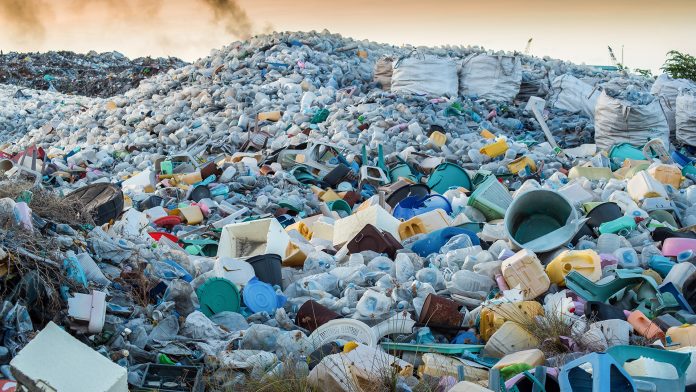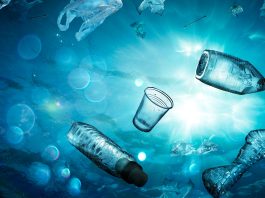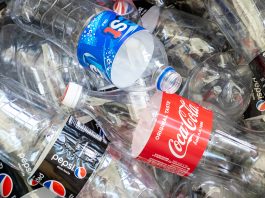The U.S. Department of Energy’s Ames National Laboratory has created an innovative method for turning harmful plastic waste into valuable, clean diesel.
Traditional diesel fuel is harmful to the environment as it releases toxic emissions into the atmosphere.
Likewise, plastic pollution poses a substantial threat to the environment.
Some plastic waste doesn’t biodegrade, meaning it can take up to 1,000 years to break down, polluting marine ecosystems, damaging soil, and poisoning groundwater in the process.
Ames Lab’s chemical conversion process has the potential to overcome these environmental threats, converting plastic waste into diesel fuel.
The innovative method could be instrumental in making two major environmental concerns greener.
Aaron Sadow, who led the development of the technology, commented: “We are converging on a crisis made worse by emissions impacting air quality and climate change that requires us to use our natural resources more efficiently, including the fossil resources used to make plastics and liquid fuels.
“But by looking holistically at energy and fuels, chemicals and materials, and their natural supply, we can design sustainable solutions for our plastic waste and energy problems.”
The growing plastic waste burden
Plastics are indispensable in various fields due to their diverse properties, enabling applications ranging from food storage to medical equipment.
Disposable plastic products, known as single-use plastics, favoured for their affordability and convenience, contribute significantly to environmental pollution.
Their persistence in landfills, coupled with inadequate waste management, results in prolonged degradation and leaching of harmful chemicals into the environment.
This contamination extends to water bodies and food sources, posing serious risks to both wildlife and human health.
Reliance on diesel
Industries such as transportation, manufacturing, construction, and agriculture heavily depend on diesel for power, production, and global transportation.
Due to its pervasive nature, Ames Lab researchers are innovating alternative fuels, such as plastic-derived diesel, to enhance sustainability and mitigate environmental effects in the transportation sector.
Pioneering a new catalysis process
The innovative process developed utilises catalysis to break down plastic waste polymers efficiently.
Unlike conventional methods, the catalysts in this process are highly selective, resulting in the direct production of desired chemicals, such as diesel fuel, without the need for energy-intensive separation processes.
This environmentally friendly approach not only yields cleaner-burning diesel that is free from sulphur but also offers significant advantages over traditional diesel production from crude oil.
By reducing reliance on fossil fuels, this clean diesel has the potential to improve emissions in the transportation sector and mitigate environmental impact.
Moreover, it contributes to the reduction of plastic waste in landfills and minimises environmental contamination, addressing critical sustainability challenges.





